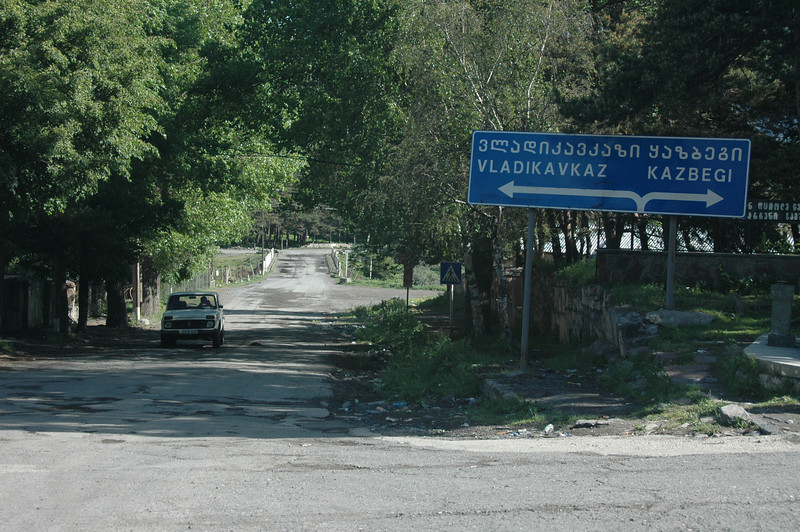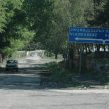
Turkey Wants to Open a Transportation Corridor through Georgia to North Ossetia
Publication: Eurasia Daily Monitor Volume: 9 Issue: 211
By:

Ankara wants to create a transportation corridor across Georgia to North Ossetia in order to establish links with regions of the Russian Federation and the states of Central Asia, Bulent Ecevit Ugur, an official of the Turkish Economics Ministry, told a meeting of the Russian-Turkish business Forum in Vladikavkaz on Tuesday (www.kavkaz-uzel.ru/articles/215762/).
Achmed Hamdi Gurdogan, the president of the Association of Exporters of the Eastern Black Sea Region of Turkey, told the group that the Turkish delegation had already proved the feasibility of such a route. He and his colleagues travelled by bus from Trabzon via Georgia to North Ossetia. The trip took “all of seven or eight hours,” he continued, expressing confidence that the route could also be used for heavy trucks carrying goods in both directions.
“When we were here a month ago,” Gurdogan said, “we conducted a small analysis and found that goods that enter the republic from here are more expensive than they ought to be. However, in comparison with Europe, the prices for our goods are much lower.” In addition to goods traffic, his colleagues told the Kavkaz Uzel news agency, the Turks would like to establish regular bus connections between Turkey and North Ossetia and to set up a logistics center in Vladikavkaz to handle the onward shipment of goods.
Kazbek Tuganov, the president of North Ossetia’s Trade and Industry Chamber, expressed hope for these projects—after all, his republic is seeking to promote tourism there (www.kavkaz-uzel.ru/articles/215473/)—but noted that “it would be naïve to suppose that after the very first meeting agreements could be signed.” There are infrastructure problems to be overcome—the northern part of the route through the mountains is in “very poor” condition—and, although he did not mention them, there are serious geopolitical consequences to be considered.
Just how momentous those could be has been highlighted over the last ten days by the reaction in Azerbaijan and in the Russian Federation to the incoming Georgian government’s proposal to re-open rail communication via Abkhazia (see EDM, November 12), a step Tbilisi has described as a “confidence building” measure. According to Tbilisi commentator Guram Sharia, however, this idea is going nowhere fast because, if it were realized, it could have dramatic geopolitical consequences (www.fondsk.ru/news/2012/11/10/transkavkazskaja-magistral-doroga-mira-ili-doroga-vojny.html).
Among these would be an increase in Turkish influence in many parts of the North Caucasus including Abkhazia at Russia’s expense, an end to the isolation of Armenia and hence a reduction of pressure on Yerevan to settle the Karabakh dispute, and new tensions between Baku and Ankara precisely for that reason. Indeed, Sharia suggested this measure could mark the beginning of the end of the status quo in the region and lead to changes in the political borders of “the entire Greater Caucasus, with the inevitable consequences [for powers within and far beyond its borders] reflowing from that.”
Moscow has been cautious if not dismissive, but Azerbaijan’s reaction to this idea was little short of outrage: One Milli Mejlis deputy even said if Tbilisi went ahead, Baku might decide to “support the separatist regimes in Abkhazia and South Ossetia" (news.day.az/politics/365138.html). Both Azerbaijani government and SOCAR oil officials met with the Georgians. And Georgia’s re-integration minister, Paata Zakareishvili, appeared to back down, saying last week that “Tbilisi will never take a decision that could harm strategic relations between Georgia and Azerbaijan” (news.day.az/politics/365155.html), not to mention Azerbaijani energy supplies to Tbilisi.
While a truck and bus route from Turkey through Georgia to the North Caucasus would not be as immediate and necessarily as large as the re-opening of the Abkhazian railroad, this latest proposal is significant. On the one hand, it shows that Ankara has decided to increase its activities in the Caucasus—South and North—even if its steps disturb Azerbaijan, something that beyond any doubt will provoke new concerns in Baku that Armenia will somehow succeed in ending the blockade that Azerbaijanis hope will force Yerevan to withdraw its forces from Azerbaijani territories, fears that Baku had largely dismissed after Turkey backed away from its 2010 agreements with Armenia.
And on the other, this latest proposal suggests that at least some in Turkey believe the North Caucasus is once again in play internationally despite Russian President Vladimir Putin’s insistence that he has re-integrated that restive area within the Russian Federation. That is certain to make Moscow nervous, and consequently, ideas that were intended to build “confidence” between the Russian government and Tbilisi could have exactly the opposite effect, one in which the struggle for rails and highways will become the new battleground of geopolitics across the region.




